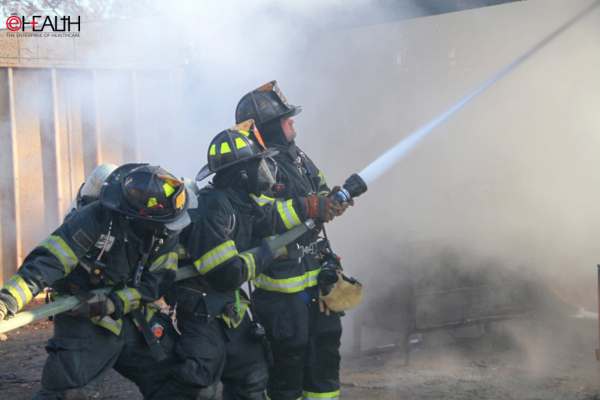
In response to the escalating temperatures during the summer months, the Union Health Ministry and the National Disaster Management Authority (NDMA) have issued a joint advisory aimed at preventing hospital fires. This advisory emphasizes proactive measures to mitigate the risks associated with fire incidents in healthcare facilities.
The advisory directs all States/Union Territories (UTs) to collaborate closely with their respective State Health Departments and State Disaster Management Authorities. The key measures highlighted in the advisory include:

1. Thorough Inspections: Hospitals are required to conduct comprehensive fire safety audits and on-site inspections to ensure compliance with fire safety regulations. This includes verifying the functionality of fire-fighting systems such as alarms, extinguishers, hydrants, and lifts.
2. Electrical Load Audits: Addressing the issue of insufficient electrical load capacity is crucial. Hospitals must conduct regular audits, especially when adding new equipment or converting spaces into ICUs, and rectify any identified discrepancies promptly.
3. Fire NOC Compliance: Hospitals must obtain valid Fire No-Objection Certificates (NOCs) from their respective state fire departments, adhering strictly to regulatory requirements. Older buildings must prioritize recalibration of electrical loads to align with updated fire safety norms.

The advisory further provides detailed instructions for hospitals to ensure fire safety compliance:
– Regular maintenance and testing of fire-fighting equipment.
– Bi-annual electrical audits to manage power consumption safely.
– Implementation of strict policies for oxygen safety in designated areas.
– Installation and testing of smoke detectors and fire alarms as per standards.
– Control of combustible materials in hospital construction and furnishings.
– Use of non-combustible materials for electrical ducts and power management systems.
– Installation of water sprinklers and hosepipes in critical areas.
– Adherence to the National Building Code for updated fire safety standards.
– Renewal of Fire Safety NOC annually with up-to-date records and staff training.
– Continuous staff training on fire prevention and emergency procedures.
States/UTs are urged to conduct follow-up reviews to ensure the effective implementation of these critical safety measures in accredited hospitals. Additionally, hospitals are advised to develop comprehensive evacuation plans and standard operating procedures (SOPs) to be followed in case of a fire incident.
By prioritizing these proactive measures, healthcare facilities can significantly reduce the risk of fire incidents during the summer months, ensuring the safety and well-being of patients, staff, and visitors.
Be a part of Elets Collaborative Initiatives. Join Us for Upcoming Events and explore business opportunities. Like us on Facebook , connect with us on LinkedIn and follow us on Twitter , Instagram.












